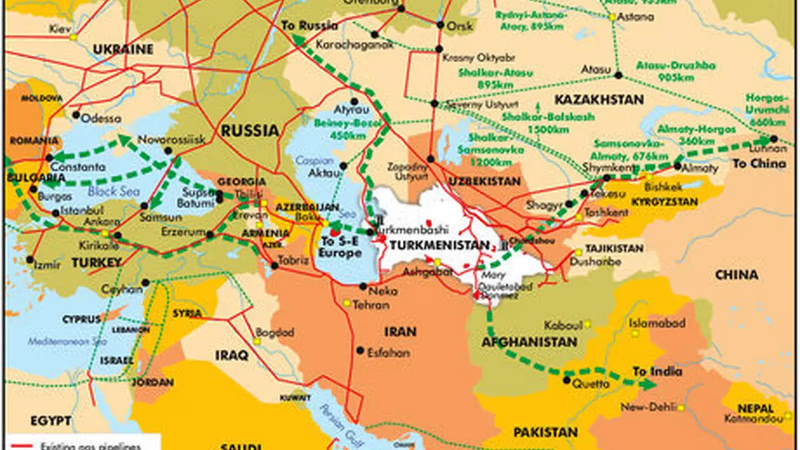
Georgia"s trade landscape: imports of energy resources and machinery. "
Georgia relies on imports of energy resources, including natural gas and oil products, to meet its domestic energy needs. Machinery, equipment, and industrial goods are significant imports for Georgia. This includes machinery for agriculture, manufacturing, construction, and transportation sectors. Georgia imports a range of consumer goods, such as electronics, household appliances, clothing, and food products. These goods cater to domestic consumption and demand. Georgia imports a substantial number of vehicles, both passenger cars and commercial vehicles. Additionally, automotive parts and accessories are also imported to support the automotive industry.
Georgia relies on imports for pharmaceutical products and medical equipment to meet its healthcare needs. Georgia is known for its agricultural products, including wine, fruits, vegetables, nuts, tea, and honey. These products are exported to various international markets. Georgia has mineral resources such as copper, manganese, and gold. These minerals, along with processed metal products, are exported. Georgia's textile and apparel industry has been growing, and the country exports garments, textiles, and related products to international markets. Georgia exports chemicals, including fertilizers, as well as pharmaceutical products.
Although there is currently an Iran-Georgia Chamber of Commerce, they do not have much activity to increase trade between Iran and Georgia, and a few months ago, due to some internal conflicts in the Iran-Georgia Chamber of Commerce between its head of two countries, it is not a strong organization. The Chamber of Commerce should be an organization that avoids any business dealings with its members, but unfortunately we see that the Chamber of Commerce itself does legal work for Iranian businessmen, such as registering a company and obtaining a residence permit in Georgia, which is not their specialty.
Most of Iran's exports to Georgia include: bitumen, fuel oil, coke and various petroleum and petrochemical derivatives, construction materials, agricultural products including: summer vegetables, garlic, onions, potatoes, as well as pistachios and vegetables (International exhibition of Agricultural Companies), a variety of home appliances and so on, if the potential of Iran to export to Georgia is much higher than this amount. Imports and exports to Georgia are among the things that many traders and businessmen want to know about. Different countries of the world, on the one hand to meet their domestic needs, and on the other hand to increase national income, import goods and services from other countries and export their goods and services to other countries.
If you intend to carry out industrial activities or export and import in Georgia, it is better to register a company in the ports of this free zone. By doing this, you can reduce many costs and your export and import process will be easier. One of the reasons for the country's growing economic trend is the economic reforms that have taken place in this country in the last decade. Imports and exports to Georgia have special attractions for many countries in the region, especially neighboring countries, and in January 2019, Georgia's foreign trade amounted to $ 826.8 million, which is 1.1% more than in the same period in January 2018. Increased by 2%. Georgia's exports to the Commonwealth of Independent States increased by 55.2% year on year to $ 125.4 million, and 26 million bottles of Georgian wine were exported in 2019.
Apart from goods, Georgia also exports services such as tourism, hospitality, transportation, and IT-related services. Georgia engages in trade with various countries and regions. The EU is an important trade partner for Georgia. The Deep and Comprehensive Free Trade Agreement (DCFTA) between Georgia and the EU has facilitated trade and increased market access. Turkey is a significant trade partner for Georgia, with bilateral trade spanning various sectors. Despite political tensions, Georgia maintains trade relations with Russia, including the export of certain agricultural products. Georgia shares close economic ties with neighboring countries in the Caucasus region, including Azerbaijan and Armenia. Georgia has been expanding its trade relations with Central Asian countries such as Kazakhstan, Uzbekistan, and Turkmenistan.
-
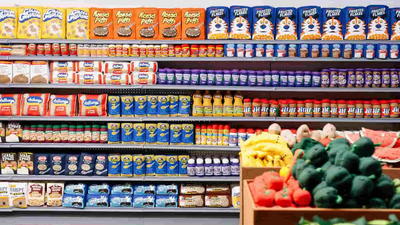
Georgia"s strategic location at the crossroads of Europe and Asia positions it as a vital trade hub, facilitating access to large markets in the Middle East and Central Asia. The country has established preferential trade agreements, including a Free Trade Agreement with the EU, enhancing its attractiveness for businesses. Georgia"s membership in the WTO further supports its trade relations. The government has implemented reforms to create a business-friendly environment, reducing bureaucracy and improving transparency, which has led to increased foreign investment. The proximity to emerging markets offers opportunities for companies looking to expand their customer base. Recent developments, such as the easing of trade barriers between Iran and Georgia following international agreements, have opened new avenues for import-export activities. Despite challenges faced by Iranian traders in the past, including financial transaction issues, recent changes have simplified customs procedures and reduced tariffs. This has made it easier for businesses to engage in cross-border trade.
Georgia"s ongoing investments in transportation infrastructure, including modernized ports and highways, are expected to enhance logistics capabilities further. Overall, Georgia presents significant opportunities for B2B marketplace activities and commodity trade within the region. "
-
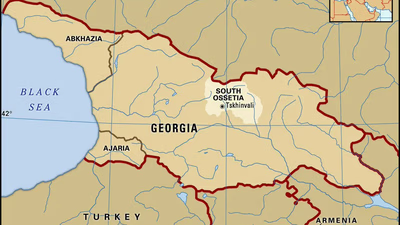
Georgia"s strategic location at the crossroads of Europe and Asia significantly influences its population dynamics and economic activities. The country"s diverse geography, characterized by mountains, valleys, and coastal areas, affects settlement patterns and infrastructure development. With a total land area of approximately 69,700 square kilometers and a population of around 3. 7 million, Georgia exhibits low population density overall, with about 45% residing in the capital city, Tbilisi. This urban concentration leads to higher population density in the capital compared to rural areas. Tbilisi"s historical significance as part of the Silk Road enhances its role in trade and cultural exchange. The geographical features also impact access to resources and transportation networks, shaping migration patterns and socio-economic development. As Georgia seeks recognition from the European Union, its geopolitical position continues to facilitate trade routes and cultural interactions with neighboring countries such as Turkey, Armenia, Azerbaijan, and Russia.
Understanding these dynamics is crucial for businesses looking to engage in trade within the region. "
-

Georgia"s linguistic landscape is dominated by the Georgian language, which is integral to its national identity and governance. The country also hosts a variety of languages, including Russian and Armenian, reflecting its cultural diversity. Eastern Orthodox Christianity is the predominant religion, influencing social dynamics and political discourse. Georgia"s economy has evolved since its independence in 1991, focusing on market-oriented reforms that attract foreign investment in sectors like agriculture and tourism. Despite these advancements, challenges such as high unemployment (13. 6%) and poverty (31%) persist. The political framework is a parliamentary republic with a multi-party system, where economic policies are shaped by political developments. Georgia"s trade includes imports of fuel and machinery from countries like Russia and Turkey, while exports feature products such as mineral water and fruits to various international markets. Understanding these dynamics is crucial for businesses looking to engage in the region"s trade opportunities.
-
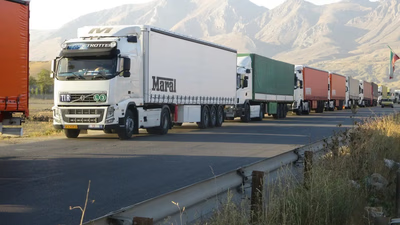
Georgia has streamlined its customs procedures to enhance trade efficiency, reducing bureaucratic hurdles for importers and exporters. Customs declarations are mandatory, detailing the nature and value of goods. The country adheres to WTO customs valuation principles for determining the customs value, which is essential for calculating duties and taxes. Certain goods may be exempt from export duties, while others, particularly natural resources and specific agricultural products, may incur restrictions or tariffs. Import duties vary by product category; for instance, cosmetics and certain food items have a 5% duty, while others like honey and dairy products face a 12% duty. Documentation such as commercial invoices and packing lists is required for customs clearance. Georgia"s tariff structure is relatively low, with ongoing reductions to attract foreign investment. The country has established preferential trade agreements that offer reduced or zero tariffs on specific goods traded with EU member states.
For detailed information on customs laws and export tariffs, businesses can consult the Revenue Service of Georgia or the Ministry of Economy and Sustainable Development. "
-

Georgia"s economy heavily relies on imports, particularly energy resources like natural gas and oil products, alongside machinery and industrial goods essential for various sectors including agriculture and construction. The country also imports consumer goods such as electronics, clothing, and food products to meet domestic demand. Notably, the automotive sector sees significant imports of vehicles and parts. Georgia"s exports include agricultural products like wine and nuts, as well as minerals such as copper and gold. Despite challenges in trade relations with Iran, there is potential for increased exports from Iran to Georgia. The establishment of a company in Georgia"s free trade zones can streamline import-export processes. Economic reforms over the past decade have bolstered Georgia"s trade attractiveness, with foreign trade reaching $826. 8 million in January 2019 alone.
Key trading partners include the EU, Turkey, Russia, and neighboring Caucasus countries. The Deep and Comprehensive Free Trade Agreement (DCFTA) with the EU has enhanced market access for Georgian goods.
-

Georgia presents diverse trade opportunities across various sectors, including agriculture, tourism, manufacturing, and energy. The agricultural sector is notable for its high-quality products like wine and nuts, with potential for modernization and export growth. The tourism industry is thriving, particularly in Tbilisi and Batumi, creating demand for hospitality services. Manufacturing benefits from Georgia"s strategic location and low labor costs, with industries such as textiles and automotive components showing promise. The construction sector is also expanding due to urban development needs. Despite challenges in advertising costs exceeding production expenses, the free economic system encourages business ventures. Trade relations with Iran are evolving, focusing on goods like meat and wood products. Additionally, Georgia"s energy sector offers investment opportunities in hydroelectric power and renewables. The IT industry is rapidly growing, supported by government initiatives aimed at fostering innovation through technology parks and incubators.
-
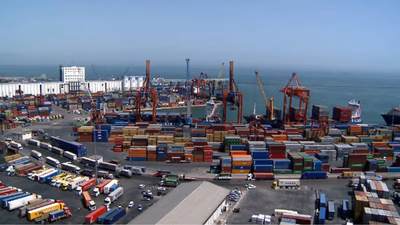
Imports from Georgia to Iran are primarily focused on specific products, notably meat, beech wood, ferro-manganese, and machinery. The total value of imports from Georgia to Iran is approximately $40 million. Despite the potential for increased trade, economic exchanges are hindered by a lack of awareness among economic delegations regarding investment opportunities. Recent agreements between Tehran and Tbilisi aim to eliminate taxes and enhance transport investments. Iran views Georgia as a strategic alternative route for cargo transport to Europe. Current imports include various goods such as tractors, metalworking machines, and cars, with the latter being attractive due to lower prices in Georgia compared to Iran. However, importing cars requires compliance with legal procedures. Goods imported from Georgia fall into three categories: authorized goods that do not require licenses, conditional goods needing licenses (like wheat), and prohibited goods under Islamic law (such as alcohol).
The importation of live cattle has also gained traction due to local production in Georgia. Quality assurance is crucial when importing industrial goods; thus, it is recommended to source products from reputable manufacturers. Additionally, Georgia"s political stability enhances its appeal for traders engaged in import-export activities. "







